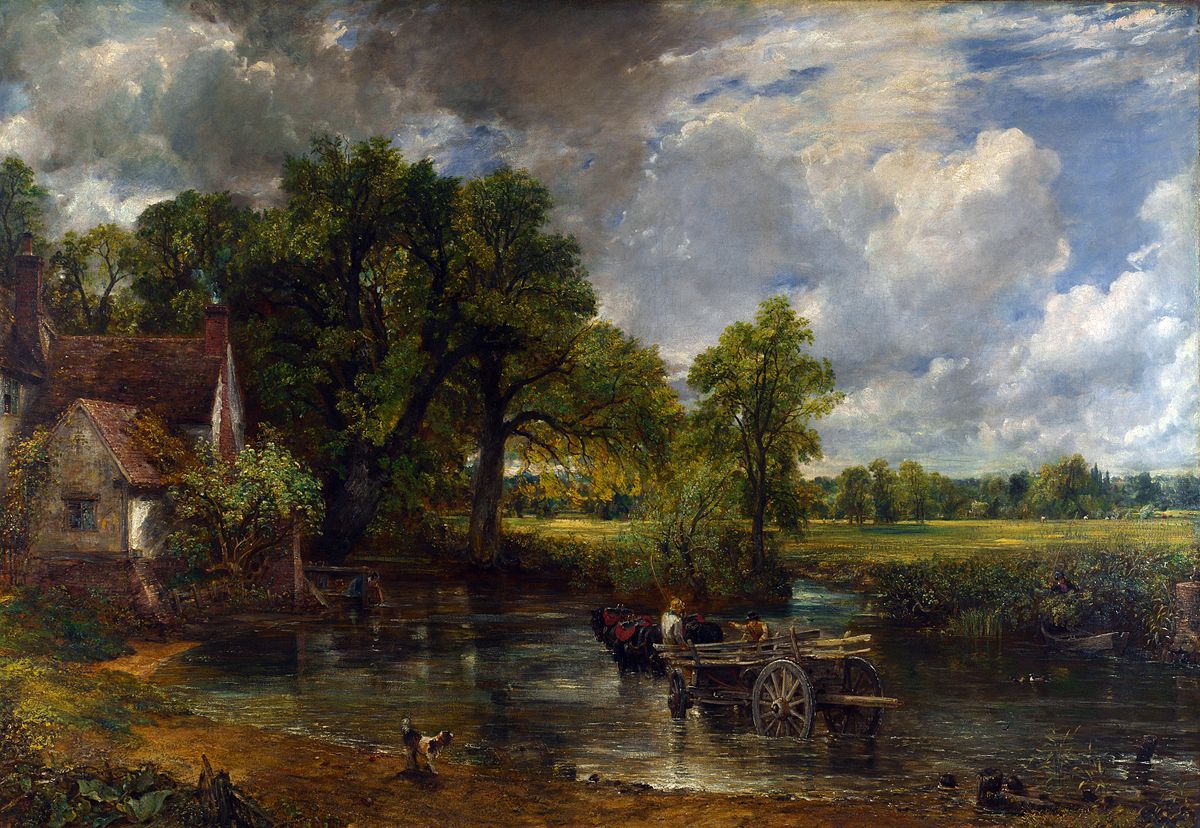May 14, 2025
Don’t Say No For Someone: Let Them Say No Themselves
Don’t Say No For People
I remember meeting a newbie – a new Christian – one time. I asked her her story. She was a white, well-educated, woman working in a creative industry, around forty, happily married and two kids. It was a simple, straight pathway story of feeling burdened, meeting a Christian at work, reading the Bible, then attending that Christian’s church.
Nek minnit – Saved!
And I was “No way! People like you don’t become Christian!” Not in the West at least. That’s our thinking isn’t it? The average person turning to Jesus is not a person who is a cultural insider with seemingly everything pretty much in place.
Yet here she was, standing before me insisting it was so. I tried to insist otherwise, but to no avail. This woman loved Jesus! Fancy that! If I’d walked up to her in her marketing office to tell her about Jesus, not knowing what I now knew, I’d have said “no” for her!
If there is one lesson to take away from the recently release McCrindle report, An undercurrent of faith, on the state of the Christian faith in Australia, it’s this – don’t say “no” for people, let them say no for themselves. The people who we assume might never be ready to become Christian just might be!
The converse is true of course, and the report speaks into that, but let’s accentuate the positive! Don’t say “no” for people who might be willing to say “yes”! More of that in a moment.
The Report Itself
As I said, the McCrindle report offers intriguing data that pushes back on some of the more accepted myths about who might be easier to reach for the gospel in Australia. And in true McCrindle style, this report makes for compelling reading. It is presented in manageable, bite-sized chunks of information.
It’s perfect for pastors, leadership teams, evangelists – any interested party actually – to get a handle on. It’s perfect to present in a video (or blog!) to help your church with the big picture. You might like to put together something like this video by former C3 pastor John Finkelde, based on the UK’s similarly pitched recent report Quiet Revival.
The McCrindle title also taps into the “returning tide” language that we have seen, particularly the work of English author and podcaster, Justin Brierley. Something is happening. Gospel water is trickling back into the Western shore. It may even be reaching Australia!
The report’s subtitle is equally interesting: “Exploring Australians’ renewed relationship with Christianity“. It’s an admission that this is not virgin soil, it is fallow ground. It’s been a while since anything, in scale at least, was planted. But it seems that post-pandemic something is happening.
The complexity of reaching people with the gospel in Australia has been, historically, that they knew it and didn’t like it. It had been rejected already.
Now none of the data available suggests that we are headed for a noisy revival, nothing like it, and young Australians are still less likely to attend church. But get this – there are an increasing number of older people moving towards Christianity.
The Boomers
Fancy that! I have assumed – and reported – that the two most hostile groups towards the faith are my generation – X-gen – and the Boomers. Why the Boomers? Because they remember the itchy pants, the boring sermons, the lists of rules, the things that held them back from enjoying life, and – of course – the scandals.
But the prodigals have been slowly returning. Here’s the report:
From 2006 to 2011, close to 120, 000 Australians aged 55+ moved from no religion towards Christianity. This increased to almost 195,000 between 2016 and 2021. While this may be partially a result of the aging population in Australia, the proportion of those moving towards Christianity is increasingly composed of older Australians.
On the surface that’s not hard to tell why. Approaching death certainly opens your eyes to the fact that one day you will close your eyes and never open them again. But it’s also to do with the meaning and purpose search, surely.
The fact that during the height of expressive individualism in the West (accompanied by a wealth generation among that cohort), there was also a meaning and purpose deficit, raises serious questions about what life is all about. And if you’ve ever been to a retirement home – ah the horror the horror of so much of it – there’s little comfort there.
I heard anecdotally at an event I was speaking at just this month that a woman conducting evangelism classes has seen an explosion of interest among Boomers.
The Migrants
Now here’s a turn-up for the books. And a turn-up for many a church’s evangelism strategy. New Australians – migrants – are no more likely to become Christians than those who have been here since birth. Heres’ the report again:
Not only are overseas migrants less likely to identify with Christianity than the average Australian, but they are also no more likely to move towards Christianity than the average Australian. Of the overseas born Australians who identified with no religion in 2016, just one in ten (10%) identified with Christianity five years later, comparable with the overall trend (11%).
Not only a turn up for the books, it’s a slight slap in the face for the untested idea that somehow overseas migrants are more open, and that our evangelistic strategies tied to community engagements (ESL etc) is leading to an uptick in professions of faith. The stats say this is not so.
Clearly there are reasons behind this, one of them being that often we assume migrants have less community when they come to our countries and therefore need deeper relational networks, but many migrants find their way to their own extended community networks.
And with strong family networks that are encouraged to join them in Australia, that idea that all migrants are just lining up for the evangelistically driven friendships the church offers, may be something of a myth.
There’s also the fact that the product on offer in Australia – freedom from restraints, cultural, moral or familial, is a pretty attractive option! I mean, what’s not to like?
This does not exactly prove the secularisation theory about migrants, but it does remind us that there are other “gospels” out there, and that the modern, secular West has a lot about it that is highly attractive to people from more traditional, and often less affluent, settings.
Young People
And what about those young people that the UK Quiet Revival report says are coming to church in the UK in vastly bigger numbers (albeit off a small base)? Well the tension point in the UK was probably a little further back than it was here. So things have moved on there a little quicker than here in Australia.
The McCrindle report suggests that young people in Australia are on a meaning search. I think we all know that. That’s a major undercurrent we could have predicted, given the issues around COVID, political, cultural and climate matters, the anxiety of the age exacerbated by social media and rapidly advancing AI technologies.
Now couple that with staggeringly high housing costs and the social dislocation required by many young Aussies as they attempt to survive financially, and you’ve got a recipe for a deep concern among young people that we are a society in decline. They realise that they will not be better off than their parents. It’s a shock to many.
But despite the crowing predictions of the demise of the church made during the pandemic, between 2016 and 2021, a total of 85,000 young Australians moved towards Christianity. That’s a positive.
We also know that the younger generation is open to the spiritual – anything spiritual! Which means an openness to dark spiritual matter as well. One of the things that the church will have to tackle in the future, is the spiritual damage done to young souls who were completely naive, and therefore unprotected, in their spiritual searches.
Materialism did not satisfy. Neither did it warn about the dangers of something – the spiritual and transcendent – that it refused to countenance. It has a lot to answer for.
But it means that young people are open to spiritual conversations. And that means we should not say no for them. We should not answer in the negative in our heads when we have a well-constructed, and clearly compassionate, conversation about spiritual matters with them. University campus Christian groups are reporting a level of intrigue they have not had for a while. After all, if you’ve had no experience of Christianity, you’re not necessarily going to be hostile towards it.
And another thing – in terms of “young people are flaky” – not when it comes to actually attending church. While non-Christian young people are not all that interested, it is younger Christians who are more regular in their attendance than their older counterparts.
As a former pastor, I can attest to this trend, in which some in my generation of Christians dialled down attendance, and dialled up extra-curricular activities. Boomer Christians were powerhouses of attendance, growing up as they did with less Sunday sport, almost no invitations to Sunday morning birthday parties, and an implicit “Sunday Lord’s Day” framework, whether they were sabbatarians or not.
My lot? The X-gens? They got all funky and heaped up one too many teachers for their itching ears, particularly around the concept that “everything is worship”. They read all the books, attended all of the conferences, then somehow stopped coming to church on a regular basis, and then – sadly for many – not at all.
I believe that younger Christians can be given a vision of Christian community over the long term that will set them up confidently to face the bracing challenges that their generations are going to have to tackle, challenges that are coming thick and fast.
Many are ready and willing to sacrifice the increasingly hollow promises of the “expressive individualism” mantra, realising that loneliness, polarisation and thin community are not worth giving up the people of God for.
I believe that the current generations of younger Christians will find new, thicker and more enriching expressions of Christian community even as their financial, cultural and vocational opportunities take a hit. And that will be attractive to others.
There’s much more in the McCrindle report that I will unpack over the coming weeks. And I’d be keen to see some thicker data for 2022-24 in line with the Quiet Revival report, especially in terms of the “vibe shift” across the West, and what that is doing to the public messaging of Christianity. But good data is good data!
And as I said, the takeaway for now is this: Don’t say no for people, let them say no for themselves. The data simply doesn’t back up all of our presuppositions or assumptions about who will follow Jesus. After all, no one ever becomes a Christian, until they do!
Written by
There is no guarantee that Jesus will return in our desired timeframe. Yet we have no reason to be anxious, because even if the timeframe is not guaranteed, the outcome is! We don’t have to waste energy being anxious; we can put it to better use.
Stephen McAlpine – futureproof
Stay in the know
Receive content updates, new blog articles and upcoming events all to your inbox.



